Top 10 Best Decades for Music
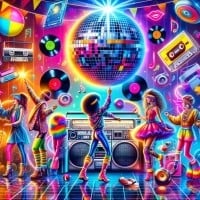 In the 1980s, music was characterized by the emergence of digital recording and the rise of MTV, which popularized artists through music videos. This era saw the dominance of genres like pop, rock, and hip-hop, with iconic figures such as Michael Jackson and Madonna leading the charts.
In the 1980s, music was characterized by the emergence of digital recording and the rise of MTV, which popularized artists through music videos. This era saw the dominance of genres like pop, rock, and hip-hop, with iconic figures such as Michael Jackson and Madonna leading the charts. This decade was the best for both pop and metal. It was ruled by the pop king and the best pop musician, Michael Jackson, as well as by Madonna and Prince. But these are only the most famous artists of this decade. If we dig deeper, we'll see synthpop (the best pop subgenre along with indie-pop, art-pop, and dance-pop). Magical sounds.
If we speak about rock, I consider it the best decade for metal. NWOBHM bands were pretty cool both lyrically and musically. It was really new for rock and very different from traditional hard rock. It also spawned Metallica, the most popular metal band, and probably my favourite one, as well as bringing thrash metal to its full potential, although proto-thrash songs like Stone Cold Crazy by Queen were released in the 70s. There is much more to say about 80s music, but I think these explanations would be enough.
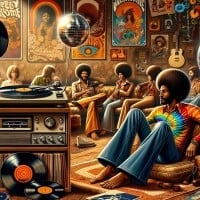 The 1970s were marked by the diversity of rock subgenres, including progressive, hard, and soft rock, along with the prominence of disco towards the decade's end. Artists like Led Zeppelin, Pink Floyd, and the Bee Gees defined the era with their groundbreaking music and performances.
The 1970s were marked by the diversity of rock subgenres, including progressive, hard, and soft rock, along with the prominence of disco towards the decade's end. Artists like Led Zeppelin, Pink Floyd, and the Bee Gees defined the era with their groundbreaking music and performances. The '60s were a time for discovering what rock could be. The '80s were amazing and discovered many new sounds because of technology. The '90s finally let black artists flourish by allowing them airplay, which exposed white kids to their music.
But that era also saw music become overly commercialized when the music industry realized they could create bands by putting cute boys together, write catchy music for them, and let them dance with fake mics attached to their ears as they lip-synced. Money ruined music from there. The 2000s and onwards have been awful for music. There are obviously exceptions, but in general, it's been bad.
But the 1970s are a different story. This is the era where bands explored their sound, their instruments, their lyrics. It was pure music that came from truly talented musicians. The great ones naturally rose to the top, not because a production company forced them down people's throats, but because people heard them, loved them, and demanded more of them. Not to take anything away from the '80s, where this happened as well, and the '90s grunge scene, but the '70s was the truest form of that.
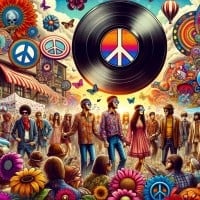 During the 1960s, the music scene was revolutionized by the British Invasion, led by The Beatles, and the development of soul, R&B, and surf music. This period also witnessed the significant cultural impact of music festivals, exemplified by Woodstock, which became symbols of the counterculture movement.
During the 1960s, the music scene was revolutionized by the British Invasion, led by The Beatles, and the development of soul, R&B, and surf music. This period also witnessed the significant cultural impact of music festivals, exemplified by Woodstock, which became symbols of the counterculture movement. There were great things in other decades, but the 1960s had a particularly large quantity of memorable music pouring out, set to the backdrop of historic social change. There were, of course, the Beatles, the Rolling Stones, Dylan, Motown, Soul, Hendrix. It was not only the golden age of AM radio but also the advent of FM.
In addition to the big-name acts, there were so many local and regional acts recording fantastic music. There were vital music scenes in practically every city and town.
You had a band on almost every block. It was an era of constant excitement and innovation in a way that has not been equaled before or since.
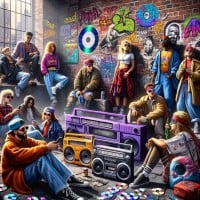 The 1990s were characterized by the explosion of grunge and alternative rock, with bands like Nirvana and Pearl Jam gaining international fame, as well as the rise of hip-hop and teen pop, making stars of Tupac Shakur, The Notorious B.I.G., Britney Spears, and NSYNC.
The 1990s were characterized by the explosion of grunge and alternative rock, with bands like Nirvana and Pearl Jam gaining international fame, as well as the rise of hip-hop and teen pop, making stars of Tupac Shakur, The Notorious B.I.G., Britney Spears, and NSYNC. Hands down, the best era for rock and alternative rock. We had grunge - Pearl Jam, Nirvana, Alice in Chains, Soundgarden, and STP, for example. We also had awesome heavy metal - Metallica, Tool, Rage Against the Machine, Nine Inch Nails, and Pantera, to name a few.
We had ska, ska punk, punk, and other alternative bands like Sublime, No Doubt, Offspring, Pixies, The Flaming Lips, and Weezer. Finally, we saw some great rap from artists such as NWA, Tupac, Beastie Boys, Lauryn Hill, Wu Tang Clan, and Snoop Dogg. Additionally, some great female artists emerged such as Tori Amos, Bjork, Ani DiFranco, PJ Harvey, Liz Phair, Sinéad O'Connor, Veruca Salt, and the Chicks.
 In the 2000s, digital music and the Internet dramatically changed the industry, with platforms like Napster and iTunes reshaping music distribution. The decade saw the popularity of genres such as pop, hip-hop, and R&B, with artists like Eminem, Beyoncé, and Lady Gaga becoming global icons.
In the 2000s, digital music and the Internet dramatically changed the industry, with platforms like Napster and iTunes reshaping music distribution. The decade saw the popularity of genres such as pop, hip-hop, and R&B, with artists like Eminem, Beyoncé, and Lady Gaga becoming global icons. This decade is great because of the variety in popular music. You would not go to school and be judged for liking hip-hop like you would in the 80s or for liking rock like you do now.
Everything from Shakira to System of a Down to Blink 182 to 50 Cent was all appreciated in the mainstream and on the radio. No other decade had that. The 60s and most of the 80s and 70s were rock dominated, or if not, then disco was.
The 90s was pure grunge until 1996-1999, where people like Green Day, Britney Spears, and Eminem were all so different, but still were massively popular. Variety continued until around 2009-2012, when pop became more and more popular. Rock, punk, metal, alternative, and even country started to get less popular with huge names like Taylor Swift switching to pop.
And here we are in 2019, no one seems to appreciate artists who actually put work into their material, and the only genres that people seem to care about are EDM (Electronic Dance Music), mumble/trap rap, and to an extent, bro country, which is usually about drinking beer and driving tractors.
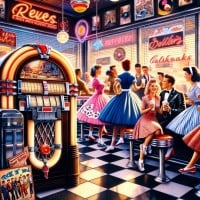 The 1950s introduced rock 'n' roll, transforming the music landscape with artists like Elvis Presley and Chuck Berry. This decade also saw the rise of teen idols and the continued popularity of jazz, blues, and country music, reflecting a post-war era of cultural and musical innovation.
The 1950s introduced rock 'n' roll, transforming the music landscape with artists like Elvis Presley and Chuck Berry. This decade also saw the rise of teen idols and the continued popularity of jazz, blues, and country music, reflecting a post-war era of cultural and musical innovation. The '50s is my least favorite decade for music, but there's some good in this decade. You know, you got your Elvises, Richie Valens, Pat Boones. (No! We don't talk about this guy! He may be a good singer, but he is such a religious nutjob and ruins black music!)
Yeah, it's a dull era for music, but I liked the rock 'n' roll and doo-wop. And they continued to pave the way for modern rock and R&B. Good.
Best era for music! It had rock 'n' roll legends like Elvis Presley and Ray Charles. Soul and jazz still flourished this decade like they did in previous years! Most diverse decade for music!
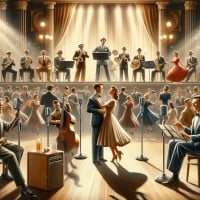 In the 1940s, big band and swing music were at their peak, with bandleaders like Glenn Miller and Duke Ellington becoming household names. The decade also saw the early development of rhythm and blues and country music, setting the stage for future musical innovations.
In the 1940s, big band and swing music were at their peak, with bandleaders like Glenn Miller and Duke Ellington becoming household names. The decade also saw the early development of rhythm and blues and country music, setting the stage for future musical innovations. Some of the greatest big bands and jazz standards originated from this decade!
The jazzy romantic serenades of the '40s helped soldiers get through World War II.
Listen to Glenn Miller, Benny Goodman, etc. Best time overall for music.
 The 2010s were marked by the dominance of streaming services, which facilitated the rise of EDM, indie music, and the continued popularity of pop and hip-hop. Artists like Adele, Drake, and Taylor Swift were among the decade's best-selling music acts.
The 2010s were marked by the dominance of streaming services, which facilitated the rise of EDM, indie music, and the continued popularity of pop and hip-hop. Artists like Adele, Drake, and Taylor Swift were among the decade's best-selling music acts. This decade was the best time of my life. It was my teenage days. I'm now 23, and I can't believe how different music is now, even though the 2010s were only about three years ago.
Back then, the music was all about feeling good, women empowerment, living your life, and feeling good in your own skin. Plus, this decade had some of the best artists around, like Rihanna, Lady Gaga, Ariana Grande, Adele, Ed Sheeran, and Justin Bieber. I could go on. I just love this decade so much.
For the first half of the decade, the music was not that bad. Since 2015, I have heard way too many slow ballads, which is starting to get depressing. Where is all the colorful, fun stuff they did back in the day?
It didn't matter how an artist dressed, looked, or sang, as long as it fit with the song. I feel like artists are more interested in the money now, not the artistic value that will keep their songs around for decades. Maybe the next decade will get better.
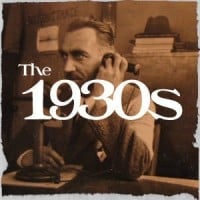 The 1930s were defined by the Great Depression, which influenced music as a form of escape and upliftment. Jazz, swing, and big band music flourished during this era, with artists like Benny Goodman and Billie Holiday achieving fame.
The 1930s were defined by the Great Depression, which influenced music as a form of escape and upliftment. Jazz, swing, and big band music flourished during this era, with artists like Benny Goodman and Billie Holiday achieving fame. This, to me, is one of the best overall decades. It was a great combination of the popular music that I enjoy the most: early jazz, sweet bands, the big bands, and swing. A lot of music on my playlist is from around this period.
In 1938, Dorothy Fields became the first woman to win an Oscar for songwriting with "The Way You Look Tonight." In the '30s, music helped people get through the Depression, proving that music has great healing power.
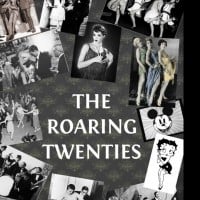 The 1920s, known as the "Jazz Age," witnessed the explosion of jazz music as a defining cultural phenomenon, with Louis Armstrong and Duke Ellington emerging as major figures. This era also saw the rise of the first radio stations and phonograph records, broadening music's reach.
The 1920s, known as the "Jazz Age," witnessed the explosion of jazz music as a defining cultural phenomenon, with Louis Armstrong and Duke Ellington emerging as major figures. This era also saw the rise of the first radio stations and phonograph records, broadening music's reach. Jazz Age! Harlem Renaissance! Blues! Also the decade of Jimmie Rodgers, the "Singing Brakeman," who is considered a pioneer in country music. This decade also saw the debut of Dorothy Fields, who partnered with Jimmy McHugh to write "I Can't Give You Anything but Love" and went on to a long, stellar career.
It just has that classic old-times feel when cities like Chicago and New Orleans were exploding with jazz and crazy parties. Overall, the Classic Years (1920-1960) were the best years for music.
I like the music in The Shining!
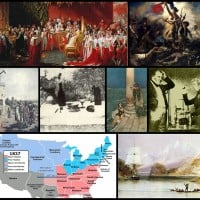 In the 1830s, the Romantic era of music was in full swing, characterized by its emphasis on emotion and individualism. Composers like Chopin and Schumann were prominent, creating works that expressed deep feelings and utilized innovative harmonic language.
In the 1830s, the Romantic era of music was in full swing, characterized by its emphasis on emotion and individualism. Composers like Chopin and Schumann were prominent, creating works that expressed deep feelings and utilized innovative harmonic language. This was the rise of Chopin, Liszt, Schumann, and other amazing romantic composers. I believe Ballade No. 1 (Chopin) was written this decade.
Best year of all time for music, especially electronica.
Music from the Italian Renaissance!
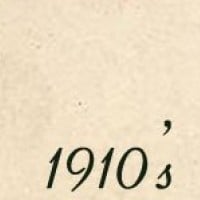 In the 1910s, the world of music was experiencing the late Romantic and early modernist movements, with composers like Debussy and Stravinsky pushing the boundaries of musical language. This decade also witnessed the rise of jazz in the United States, setting the stage for its future popularity.
In the 1910s, the world of music was experiencing the late Romantic and early modernist movements, with composers like Debussy and Stravinsky pushing the boundaries of musical language. This decade also witnessed the rise of jazz in the United States, setting the stage for its future popularity.
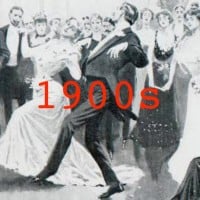 The 1900s marked the transition from the Romantic era to modernism in music, with composers such as Mahler and Debussy challenging traditional forms and harmonic conventions. This decade also witnessed the early development of jazz in New Orleans.
The 1900s marked the transition from the Romantic era to modernism in music, with composers such as Mahler and Debussy challenging traditional forms and harmonic conventions. This decade also witnessed the early development of jazz in New Orleans.